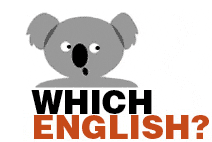haema- or hema-?
The Americans decided, around the early 1800s, to lop off the -a- from what used to be ligatured -ae-. Except for encyclopedia, British spelling still prefers the ae spellings. Therefore, it is haema- (UK) and hema- (US).
This also applies to -haemia (UK), with the US spelling being -hemia.
haemorrhage
Even if you can spell it correctly the first time, the use of haemorrhaging in terms of making a financial loss is starting to become tiring. Stick to describing severe wounds and avoid haemorrhaging cash or haemorrhaging money etc.
hail(s) from
Does anyone ever "hail" from somewhere outside the written world? "Hey mate, where does your friend hail from?" What's wrong with the word come?
Haiti
Haiti is not an island on its own.
at hand or on hand?
The more common expression in the US is on hand, though at hand does does occur occasionally. In the UK, both at hand and on hand are both used regularly, but presumably at hand is being sidelined by the US on hand. [I haven't got a pair of scissors at/on hand at the moment.]
harbor or harbour?
Even if the British DVD version of Pearl Harbor features the -or spelling on the cover, don't forget that it is harbour in British English and harbor in the US.
The reason for the preserved -or spelling in the film title is because the name of the harbour was/is 'Pearl Harbor', so the film was called Pearl Harbor no matter what language it was released in. This means that every writer (whether using British or American English) must respect proper nouns, such as Pearl Harbour, World Trade Center etc.
hardcore or hard-core?
Spell it hardcore whether it's used as a noun (thing) or adjective (description).
harebrained, hare-brained or hairbrained?
A bad decision may be described as hare-brained (UK) or harebrained (US), but never 'hairbrained'.
head-
The spellings are headteacher, head master and head mistress.
headlines and minor sentences
Headlines and minor sentences (For Sale, No Smoking etc) are often exempt from the 'normal' rules of English usage. General rules for good headlines are to avoid passives (Area is no-go zone say police) and make them active (Police warn of danger zone). Another good rule is to avoid a string of nouns (Deputy head schools teachers over violence).
help and decide or help decide?
You either help decide something or help to decide, but not 'help and decide'.
healthcare or health care?
The evidence seems to be that health care (two words) is used more frequently than healthcare (one word). The style guides and dictionaries differ on which they recommend: Associated Press, American Heritage Dictionary, Merriam-Webster Collegiate and the OED all give health care; Oxford American, Collins and Macmillan dictionaries all give healthcare. Of the various newspapers, health care is used by New York Times, Washington Post; healthcare is used by the Guardian and LA Times.
The first record in English is health care, originating in the US in 1940.
high street or High Street?
You go shopping on the high street, but you might live somewhere called High Street.
hijack
Only a plane, boat, train or bus etc can be hijacked. A school, theatre or office building cannot be. The term only applies to moving vehicles.
hike
Americans like using hike to mean 'a rise' but it's not the done thing in Britain. Here, a hike usually involves mountains or valleys and sore feet.
British writers should avoid hackneyed phrases price hike, pay hike, energy hike, petrol hike etc.
hippopotamuses or hippopotami?
The accepted plural form is hippopotamuses but traditionalists will insist on hippopotami. Both are correct.
hoard or horde?
A hoard of cash and a horde of visitors.
hodgepodge or hotchpotch?
The British spelling is hotchpotch and the American spelling is hodgepodge.
holiday or vacation?
holiday: Britons go on 'holiday' and Americans go on 'vacation'. To Americans, 'holiday' means the British 'bank holiday' or 'public holiday', while 'the holidays' in American is the (usually) politically correct term for the Christmas holidays. I once worked for an American company that decided to change 'holiday' to 'vacation' in all their European brochures and instructed phone staff (in Britain) no longer to use 'holiday'.
homely
Americans use homely to say that something is unattractive or unpleasant. The British use homely to say that something is pleasant, comfortable and cosy (US cozy). This means that there is plenty of room for miscommunication, so be careful if you are involved in cross-cultural exchanges and use this word.
hopefully
Do you ever say something like: "Hopefully I'll get the job/day off/meet the person of my dreams etc'? If you do, you aren't alone, but be aware that the use of 'hopefully' in this way grates on many people's ears.
What hopefully should mean, they argue, is 'in a hopeful way' or 'with hope'; such as in "The boy looked up hopefully at the stars and prayed that his wish come true". The first form – and I would argue that the, *cough*, 'modern' form – is in widespread and in common usage, but a certain creed of person will regard it as barbaric and 'incorrect'.
You might like this interesting text (PDF) by Jack Ognistoff entitled 'In defence of "hopefully"'

